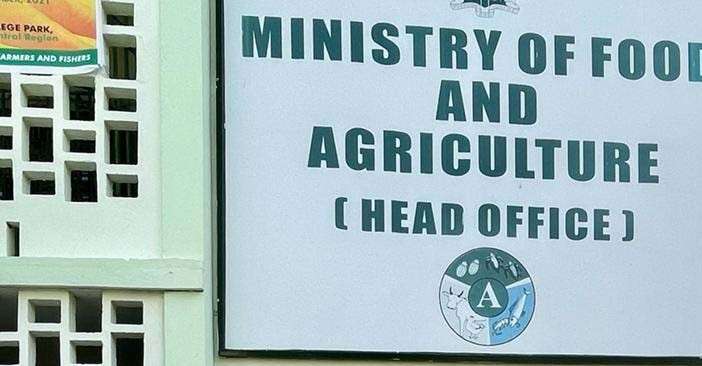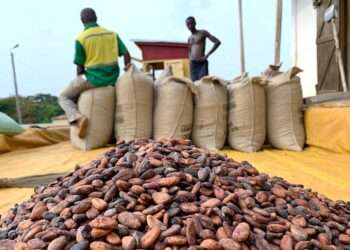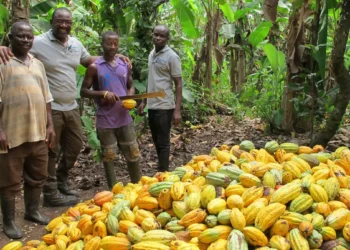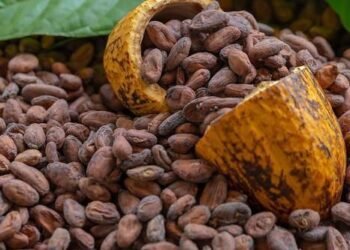The Ministry of Food and Agriculture has initiated efforts to install irrigation infrastructure across eight regions to enable year-round agricultural production.
This initiative is essential for providing a consistent supply of raw materials to sustain the government’s 24-hour economy policy.
The program, titled “Irrigation for Wealth Creation,” is being implemented in phases. The first phase focuses on the Volta, Oti, Central, North East, Northern, Savannah, Upper West, and Upper East regions. These regions have been identified as strategic locations for irrigation development to boost agricultural productivity.
As part of this initiative, the Minister of Food and Agriculture, Hon. Eric Opoku has directed regional ministers to take charge of negotiations to acquire 10,000 hectares of land for the project. This process will commence immediately following the approval of the national budget by Parliament.
The target of securing 10,000 hectares aligns with the broader national agenda of increasing irrigable land, which currently stands at 1.9 million hectares. However, only 1.6% of this land is currently under irrigation, a figure that lags significantly behind the West and Central African regional average of 13.9%.
The regional ministers, who convened with the Minister of Food and Agriculture, have been instructed to initiate discussions with traditional leaders in the earmarked areas. This process will involve land negotiations, surveying, mapping, and designing, all of which are scheduled to begin on February 18. The minister also announced that the second phase of the program would extend the irrigation infrastructure to all remaining regions.
Irrigation-Based Economy
Eric Opoku emphasized that the initiative aligns with the government’s broader vision of leveraging agriculture as a key driver of economic growth. He noted that Ghana’s reliance on seasonal farming has limited productivity and that transitioning to irrigation-based agriculture will revolutionize the sector.
“For the 24-hour policy to work to perfection, there is the need to ensure sustainable agriculture production.”
Hon. Eric Opoku Minister of Food and Agriculture
He further highlighted the importance of ensuring a steady supply of agricultural raw materials throughout the year, particularly for industries reliant on farm produce.
“If you set up a factory here that takes raw materials from the agriculture sector and if production is seasonal, agriculture will produce the raw materials for three months and the remaining months will not be functional.”
Hon. Eric Opoku Minister of Food and Agriculture
He stressed that implementing irrigation infrastructure will address this issue by ensuring continuous water supply, which in turn will guarantee uninterrupted production cycles for industries.
Support for Smallholder Farmers

Recognizing the role of smallholder farmers in the agricultural sector, the minister assured that their operations would not be negatively impacted by the irrigation project. Instead, the government aims to provide them with the necessary resources to enhance their productivity and enable them to farm throughout the year.
“It is going to affect them positively but as for the land we have the assurance that these are areas earmarked for irrigation long ago, so we only have to finalise the discussions with the chiefs.”
Hon. Eric Opoku Minister of Food and Agriculture
This assurance is expected to encourage smallholder farmers to embrace the irrigation initiative, as it will provide them with consistent access to water, reducing their dependence on unpredictable rainfall patterns.
The implementation of irrigation infrastructure is a crucial step toward modernizing Ghana’s agricultural sector. It will not only improve food security but also support agro-industrial development by ensuring a reliable supply of raw materials for processing plants. Additionally, by reducing reliance on seasonal rainfall, farmers will be able to expand their operations and increase yields, thereby improving incomes and economic stability.
The government’s commitment to this initiative underscores its recognition of agriculture as a critical pillar of national development. With proper execution and stakeholder collaboration, the “Irrigation for Wealth Creation” program has the potential to transform the agricultural landscape and contribute significantly to Ghana’s economic progress.
As the government moves forward with securing land and beginning preliminary works, attention will be on how effectively the initiative is rolled out and the impact it will have on farmers, industries, and overall national growth.
READ ALSO; Kanye West Releases Stern Statement After Divorce Rumours





















